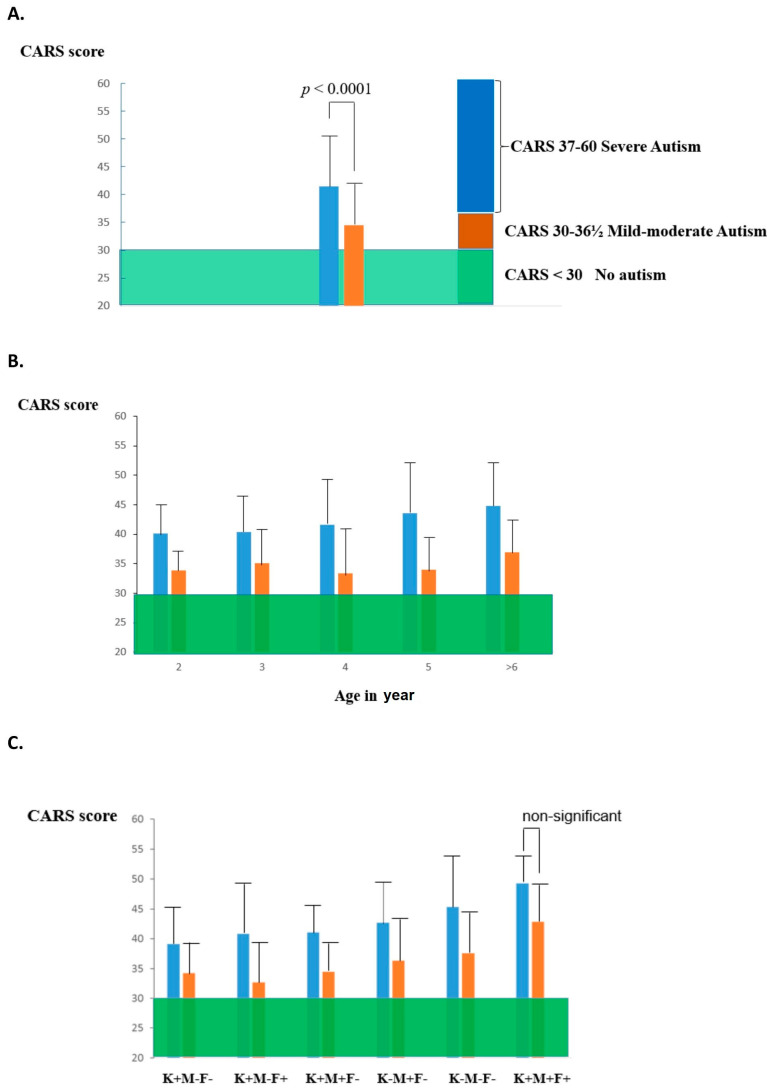Figure 3.
(A). Compared to untreated autistic patients (n = 84) whose CARS remained unchanged, a group treated with folinic acid and with their nutritional deficits corrected showed a decrease in baseline CARS score from severe (n = 82; CARS mean ± SD: 41.34 ± 6.47) to moderate or mild autism (mean ± SD: 34.35 ± 6.25; paired t-test p < 0.0001). (B). As a function of age, the baseline CARS (blue bars) increased slowly with advancing age, while the CARS after a 2-year treatment period (orange bars) diminished significantly for all age subgroups. The increase of baseline CARS with advancing age will adversely influence the final outcome for older age groups, particularly above 6 years. (C). This graph represents the outcome of treatment as a function of the particular FRα antibody profile in the child (K), mother (M) and father (F). The presence of maternal FRα antibodies or presence of antibodies in both parents will negatively affect the treatment outcome (adapted from [51]).

